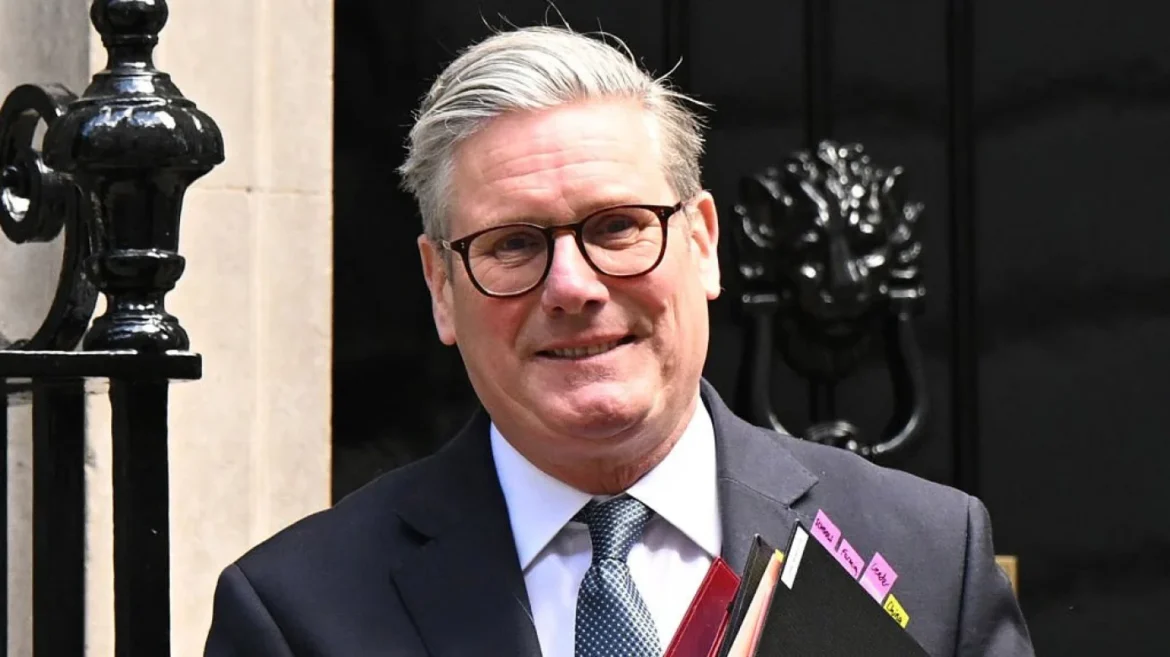Sir Keir Starmer, the leader of the Labour Party, made a momentous move by removing four Members of Parliament (MPs), who disobeyed party discipline. The suspension of Neil Duncan-Jordan, Brian Leishman, Chris Hinchliff, and Rachael Maskell resulted after the members voted against welfare cuts that the government proposed, which led to one of the most heated internal debates. The ruling to dock them of party whip with the House of Commons means that they will henceforth serve as independents in the House of Commons. This insurrection shows that there are increased tensions in the Labour Party surrounding welfare reform, as some MPs have expressed disapproval because of the damage it would supposedly cause to vulnerable population groups. The suspension highlights the stress that Starmer is under to unite the party with controversial policies.
Table of Contents
ToggleWhy Did Labour Suspend Four MPs?
In a major political move, the Labour leader, Sir Keir Starmer, has suspended four of his MPs over their failure to obey party discipline. It has been suspended on the basis of the fact that they voted against their government, or rather against the controversial welfare reform bill that has brought a lot of debate within the party and also in the wider society.
The concerned MPs, who include Neil Duncan-Jordan, Brian Leishman, Chris Hinchliff, and Rachael Maskell, have been suspended without the Labour Party whip. Consequently, they will now be sitting as an independent in the House of Councilors, and this will be a clear indication of a sharp division in the party on the major welfare policies. This is not the first time that the internal rebellion was observed; some other MPs have shown their concerns regarding proposed cuts in welfare benefits. Here is the link to our article on Finance and Politics
What Led to the Suspension of These MPs?
The sacking of these four is a result of voting against the welfare reform bill of the government. These MPs were included in a larger number of 47 MPs (Labour) who opposed the bill on the basis that the proposed reductions would have adverse effects on the vulnerable groups. The government is trying to save 5 billion pounds per year in 2030 by reducing disability and sickness benefits, and this has really been opposed by the smoke of the Labour Party.
The fears that were raised by these MPs included that the untenable cuts will target the most vulnerable groups that including people with disabilities, disproportionately. The argument has been on whether such reforms are dictated by fiscal responsibility or are unfair austerity that adversely affects the victims of need.
Why Did Four Labour MPs Rebel Against the Welfare Reform Bill?
The four MPs stood their ground in opposition to the welfare reform bill, even though they were suspended. One of the most active plotters of the rebellion was Rachael Maskell, the MP with York Central, who referred to the bill as an omnishambles and the proposed cuts as Dickensian. Neil Duncan-Jordan, who represents Poole, expressed his firm criticism, saying that he could not uphold policies that would aggravate the welfare of the disabled. Alloa and Grangemouth Brian Leishman also branded the cuts as a betrayal and noted how it was part of his obligation to represent the already austere communities. Chris Hinchliff has said he remains proud to be a member of Labour and vowed to get back to the party as soon as the conflict is overcome. Each of the four MPs pledged themselves to their constituencies as well as to the values of Labour. Here is the link to our article on Net Zero Transition
Why Was the Welfare Reform So Controversial?
The welfare reform bill presented by the government to reduce spending on welfare by 2030 by a total of 5bn is one of the issues of concern not only in Labour, but among the wider political scene. The bill calls to downsize disability benefits, and this has been met with much criticism. Over 120 Labour MPs were on the brink of defeating the bill completely, which is a major upheaval given the fact that the party has enjoyed a substantial majority in the last general election.
Labour ministers made significant concessions in an attempt to appease the rebel MPs, although strong opposition was present. This saw the passage of a watered-down form of the bill by the Commons, but the unrest revealed the widening of differences in the Labour Party over the way social welfare should be addressed.
What Are the Implications for the Labour Party?
The uproar and suspensions show the issues that arise over the leadership of Sir Keir Starmer. Although he has endeavored to ensure party discipline, this intraparty rebellion is an indication that there is a break in Labour unity, particularly on economic policies and social welfare. This latest effort to halt the MPs who disagree with him might provide Starmer with a temporary boost at the moment; however, it will also repel a portion of voters affiliated to the left-wing of the party.
The suspension of these MPs may affect the Labour Party as a whole as it now takes some summer recesses. The splits with labour could easily raise internal revolt in the ranks as welfare cuts by the government remain a hot topic.
Final Thoughts on the Labour Party’s Welfare Reform Controversy
The latest wrestling within the Labour Party over its policy on welfare cuts came to the fore with the suspension of four MPs. The move by Labour to suspend such members who differ on these cuts raises questions about how the party will balance its ideological mandate with the financial imperatives of governing. As welfare reform remains a controversial issue, it is evident that the internal conflicts within the Labour suspends MPs will play a significant role in shaping the future course of the party.


